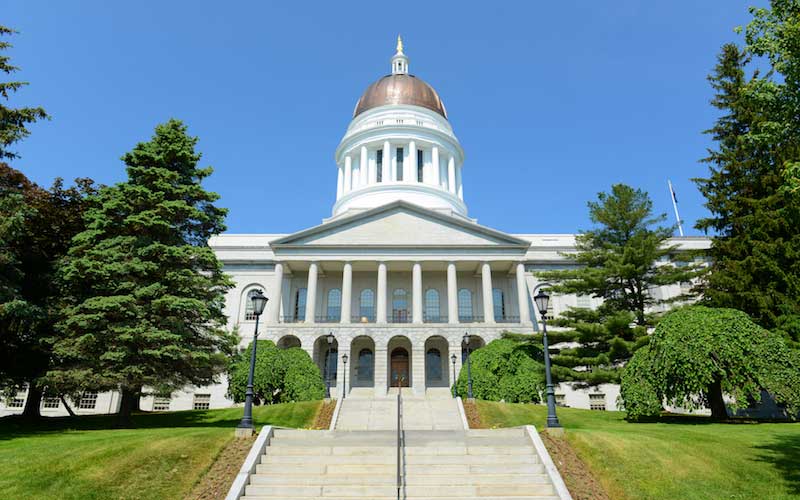
Maine passed an ambitious climate law last session, and how has a chance to start implementing it. Photo Credit: Shutterstock
With newly elected Governor Mills at the helm, Maine passed emergency legislation last June that requires the state to drastically reduce its climate-damaging emissions. This new climate law sets enforceable emissions targets and establishes a roadmap to get there.
And now the rubber is hitting the road. Two utilities are looking for approval to pass the costs of new gas projects along to Mainers. They’re also planning to lock Maine families and businesses into long-term contracts for climate-damaging gas.
CLF is the only climate advocacy group participating in these proceedings. We are emphasizing that these two proposals are inconsistent with Maine’s ambitious carbon emissions limits. Within a decade these investments won’t benefit energy customers, even though the costs associated with them will continue to be borne by Mainers for years to come.
Planning for the Future by Taking Climate into Account
The state’s new climate law, “An Act to Establish the Maine Climate Change Council to Assist Maine to Mitigate, Prepare For and Adapt to Climate Change,” was just the start of several bold actions by Governor Mills to address the climate crisis. Just last week, at the United Nations Climate Action Summit, she told world leaders that she intends to make Maine carbon neutral by 2045. Mills also announced that she has signed an executive order directing the newly created Maine Climate Council to draft recommendations for how the state can get there. This council, composed of state lawmakers, scientists, energy experts, and representatives from an array of industry and other groups, kicked off its first meeting last week.
Maine needs to move off gas to address the climate crisis and meet its new goals. But gas is also on its way out as a matter of simple economics. A recent study of the economics of gas compared to those of clean energy sources establishes that industry growth is already declining, similar to how the coal industry has contracted and collapsed in New England. This means new gas infrastructure, and contracts that lock customers into gas use for the next 15 years, are bad investments because clean energy like solar and wind are displacing natural gas as the cheapest form of energy.
Keep Up with These First Tests of Maine’s New Climate Law
Two of Maine’s utilities are seeking approval for new gas projects. Bangor Natural Gas and Northern Utilities (Unitil) are both trying to lock Mainers into long-term gas contracts. The utilities want to guarantee space for themselves on gas pipelines for the next 15-20 years—which means we’ll all be paying for that space long after we stop needing it.
The two gas proposals stand before the Maine Public Utility Commission—the state agency responsible for permitting any new energy infrastructure and long term contracts. Cases at the Commission tend to be technical, arcane and, quite frankly, tedious. But how the agency applies Maine’s new climate law to these two proposals will likely set the standard for how other agencies consider projects that will significantly impact Maine’s ability to address our climate emergency.
For CLF, we see these two cases as an opportunity for Maine to get the climate law’s implementation right from the outset. And that will require the Commission to reject these new gas projects.



